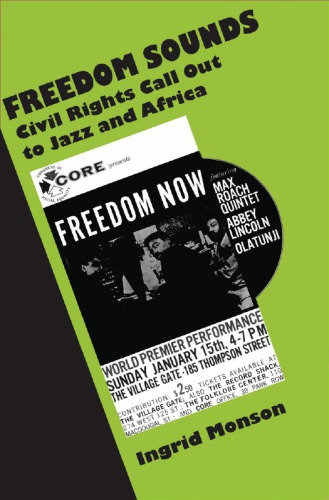Product desciption
Freedom Sounds Civil Rights Call Out To Jazz And Africa Ingrid Monson by Ingrid Monson 9780195128253, 9780199757091, 0195128257, 0199757097 instant download after payment.
An insightful examination of the impact of the Civil Rights Movement and African Independence on jazz in the 1950s and 60s, this book traces the complex relationships among music, politics, aesthetics, and activism through the lens of the hot button racial and economic issues of the time. It illustrates how the contentious and soul-searching debates in the Civil Rights, African Independence, and Black Power movements shaped aesthetic debates and exerted a moral pressure on musicians to take action. Throughout, its arguments show how jazz musicians' quest for self-determination as artists and human beings also led to fascinating and far-reaching musical explorations and a lasting ethos of social critique and transcendence. Across a broad body of issues of cultural and political relevance, the book considers the discursive, structural, and practical aspects of life in the jazz world of the 1950s and 1960s. In domestic politics, the book explores the desegregation of the American Federation of Musicians, the politics of playing to segregated performance venues in the 1950s, the participation of jazz musicians in benefit concerts, and strategies of economic empowerment. Issues of transatlantic importance such as the effects of anticolonialism and African nationalism on the politics and aesthetics of the music are also examined, from Paul Robeson's interest in Africa, to the State Department jazz tours, to the interaction of jazz musicians such as Art Blakey and Randy Weston with African diasporic aesthetics. It explores musicians' aesthetic agency in synthesizing influential forms of musical expression from a multiplicity of stylistic and cultural influences—African American music, popular song, classical music, African diasporic aesthetics, and other world music—through examples from cool jazz, hard bop, modal jazz, and the avant-garde. By considering the differences between aesthetic and socio-economic mobility, it presents a fresh interpretation of debates over cultural ownership, racism, reverse racism, and authenticity.


